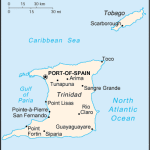 A draft Cybercrime Bill prepared by the government of Trinidad and Tobago would criminalise a wide range of legitimate digital activity, according to an analysis of the Bill released today by the Centre for Law and Democracy (CLD). Although the Bill has formally lapsed, it is likely that a similar draft will be introduced in the near future.
A draft Cybercrime Bill prepared by the government of Trinidad and Tobago would criminalise a wide range of legitimate digital activity, according to an analysis of the Bill released today by the Centre for Law and Democracy (CLD). Although the Bill has formally lapsed, it is likely that a similar draft will be introduced in the near future.
“The draft Cybercrime Bill is very significantly overbroad in terms of the types of online expressive activity it would render illegal”, said Toby Mendel, Executive Director of CLD. “Far more attention needs to be given to the numerous provisions that restrict free speech.”
Some of the key problems with the Bill are as follows:
• Many of the offences it creates are drafted in very broad terms so as to capture innocuous online activities. Some of these shift the onus onto users to provide legal justification for activities which are only potentially harmful, instead of defining what is prohibited narrowly so as to capture only harmful activity.
• A number of provisions are unnecessary since they duplicate existing legal provisions, creating confusion and in some cases heavier penalties for the commission of offences online.
• The definition of cyberbullying is significantly overbroad.
• The Bill would criminalise the otherwise innocent receipt of computer data by third parties, including journalists.
CLD urges the government of Trinidad and Tobago to revisit the Bill with a view to preparing a draft that is more in line with international human rights standards, in particular relating to freedom of expression.
The CLD analysis and the draft Bill are available here and here.
For further information, please contact:
Toby Mendel
Executive Director
Centre for Law and Democracy
Email: toby@law-democracy.org
+1 902 431-3688
www.law-democracy.org
twitter: @law_democracy



